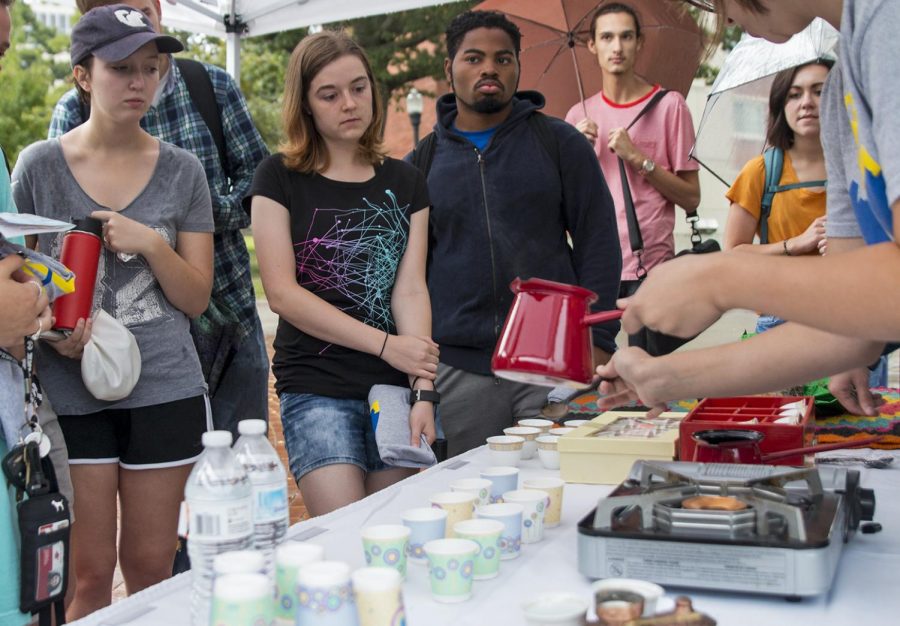First Foodways event shows culture in coffee
October 27, 2017
The first Foodways class event of Western Kentucky University featured Bosnian coffee brewing to demonstrate culture through traditional techniques at the Kentucky Museum Thursday.
The WKU Foodways graduate class arranged the event to offer students the opportunity to plan an occasion and showcase the unique role of a particular food group in culture, Nicole Musgrave, a Foodways student and graduate assistant at the Kentucky Folklife Program, said. She said it was put together by the WKU Department of Folk Studies and Anthropology and the Kentucky Folklife Program as part of “A Culture Carried: Bosnians in Bowling Green,” an exhibition lasting until June 30 at the Kentucky Museum.
“We chose coffee because it is so closely tied to Bosnian values of hospitality and neighborliness, so we thought it would be a great way to introduce the WKU community to Bosnian food traditions,” Musgrave said. “Bosnia has a rich coffee tradition.”
Senida Husić and Sanida Palavra, both born in Bosnia-Herzegovina, showed the process while supplying background on the importance of coffee in their heritage. Palavra said coffee is connected to the Bosnian idea of “ćejf,” a process that brings a person peace and happiness.
“You sit with your friends and family and leave feeling better,” Palavra said. She said drinking coffee the traditional way involves taking time.
Coffee brewing is also seen as a rite of passage for young girls in Bosnian culture, Palavra said. She said they begin making coffee for guests when they become teenagers.
Husić and Palavra demonstrated the brewing process with a Bosnian coffee pot called a “džezva” for boiling the water. Husić said the warmed water is added to coffee grounds in separate coffee cups, and the chemistry brings out the flavor without stirring or filters.
“If it’s a really good cup of coffee, you will have foam until the end,” Husić said. She also said it’s important not to brew it too strong.
Husić said the coffee is usually served without sugar or creamer. She also said it is often eaten with desserts, such as tiramisu, to balance out the taste with sweetness.
“We do this to gather together,” Husić said. She said her family followed the coffee preparation style used during war in her home country, which involved buying raw coffee beans to cook and grind themselves.
Coffee is normally one of the first things offered when someone visits a home in Bosnian culture, Husić said. She said there is only a small percentage of Bosnians who do not drink coffee.
“You can see coffee is essential to a Bosnian person,” Husić said. She said she started making coffee when she was around 9 years old.
The next Foodways demonstration is planned to feature pita and will require an RSVP, Musgrave said. She said the details are yet to be decided, but information will be available later on the WKU Events page.
Earlier this article said the next demonstration is about pizza. It is about pita. We regret the error.
Reporter Amelia Brett can be reached at [email protected].

























